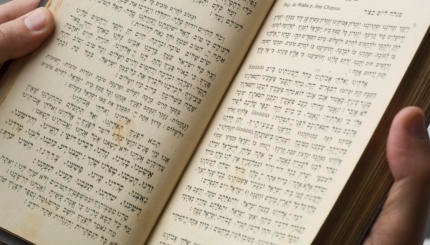learning
The New MyJewishLearning.com
Ch-ch-ch-changes!
Orthodoxy’s Limitations
A community that cannot address problems as real as its members' economic suffering leaves a lot to be desired.
Siddur: Jewish Prayer Book
Is the siddur a holy text or crib notes for a conversation with God?
Jewry Over the Past Four Years
What have been the most influential stories?
Texts Bibliography
Bibliography


